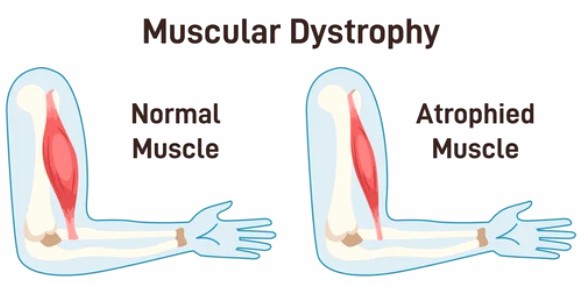Gene Therapy for Muscular Dystrophy
Inquiry
Muscular dystrophies, including Duchenne muscular dystrophy (DMD), severely affect the quality of life of patients. CD Formulation has been involved in gene therapy formulation development for many years, and our researchers have pioneered new pathways for the treatment of this degenerative disease through core technologies such as gene vector optimization and targeted delivery system innovation. From preclinical research to formulation development, we provide our partners with technology solutions that cover the entire gene therapy lifecycle.
Advantages of Gene Therapy in Muscular Dystrophy Research
- The treatment is highly effective. Gene therapy can target dysfunctional genes in muscular dystrophy, restoring the expression of missing or inactivated proteins by correcting genetic errors or introducing normal genes.
- Pinpointing the diseased gene. Gene therapy can pinpoint the specific gene mutation site that causes muscle atrophy and perform targeted repair or replacement to precisely correct the genetic error.
- Reduced impact on normal tissue. Gene therapy can act more precisely on the diseased cells or tissues, reducing damage and side effects on normal tissues.
- Good durability. Gene therapy can continue to play a therapeutic role by introducing exogenous genes into the patient's body so that they are stably expressed in the cells for a long period.

Main Applications of Gene Therapy for Muscular Dystrophy
Duchenne muscular dystrophy (DMD)
Gene therapy has a large potential in the treatment of DMD disease. Studies have been conducted to utilize a variety of therapeutic strategies for DMD treatment strategies. These include the successful repair of dystrophin protein expression in human induced pluripotent stem cell-derived myoblasts using CRISPR gene editing, which resulted in the expression of dystrophin and elevated biofilm integrity, which was subsequently further confirmed in hDMD/mdx mice. As well as the method of attacking affected exons with preformed antisense oligonucleotides, which produces shorter but potent dystrophin proteins and achieves therapeutic benefit for DMD. Furthermore, A new gene therapy that utilizes a broken protein intron-mediated protein trans-pruning mechanism to express larger anti-myasthenic proteins (dystrophin) to replace the defective DMD gene in muscles affected by DMD. Previous studies have identified several pairs of broken protein introns that efficiently link two or three protein fragments to produce either a medium-sized or full-length dystrophin.
Limb-girdle muscular dystrophy (LGMD)
Muscle stem cell gene editing and transplantation have shown promising applications in the treatment of LGMD, and studies have been conducted to correct genetic errors and restore functionally abnormal proteins in cell culture by removing muscle stem cells from patients suffering from limb-girdle muscular dystrophy. In a new mouse model of this disease, cells were collected using the same method, they were edited, and the corrected cells were transplanted back into the mouse, where the protein function was restored and muscle regeneration began. The Dysferlin gene encodes a large membrane protein, and loss-of-function mutations in it lead to muscle dysfunctions, mainly in LGMD type 2B/R2, among others. By segmenting the Dysferlin gene and delivering two mRNA fragments separately, a study has successfully restored Dysferlin protein expression in an animal model and significantly improved muscle function.
Spinal muscular atrophy (SMA)
SMA is a rare genetic disorder that causes progressive muscle weakness, paralysis, and even death. Without treatment, most pediatric patients with severe SMA are permanently dependent on mechanical ventilation or eventually die by the age of 2 years. Existing studies have shown that next-generation single-base editing technologies can efficiently repair aberrant splicing of the SMN2 gene, enabling the expression of SMN proteins for the treatment of SMA.
Our Capabilities of Gene Therapy in Muscular Dystrophy Research
- Experienced. We have extensive preclinical research experience and have accumulated a wealth of data from numerous preclinical studies on a wide range of animal models of muscular dystrophy.
- In-depth research. We have conducted in-depth research on the functions and regulatory mechanisms of muscular dystrophy-related genes and provided a theoretical basis for gene therapy research.
- Professional team. Our team has rich expertise in gene editing, molecular biology, clinical medicine, etc. to help our clients advance gene therapy research for muscular dystrophy from multiple perspectives.
- Customized solutions. We can develop customized treatment plans for different types of muscular dystrophy to maximize your research efforts.
Explore Our Gene Therapy Formulation Development in Muscular Dystrophy
Gene Editing Technology
Our advanced gene editing technologies, such as CRISPR-Cas9 technology, are capable of pinpointing and repairing muscular dystrophies due to genetic mutations, and we repair patients' genetic mutations by designing guide RNA that targets the mutated locus and directing the CRISPR-Cas9 system to muscle stem cells for genetic repair.
Gene Delivery System
We continue to develop efficient gene delivery vectors, especially in optimizing and developing novel AAV vectors. In Duchenne muscular dystrophy research, we use a series of AAV vectors, each carrying a portion of a therapeutic anti-myasthenia gravis protein embedded with assembly instructions that automatically assemble for gene repair upon entry into the body.
CD Formulation is a leader in the development of gene therapy formulations, and we continue to advance the use of gene therapy formulations in muscular dystrophy drug development. If you are interested in us, please feel free to contact us.
Related Services


